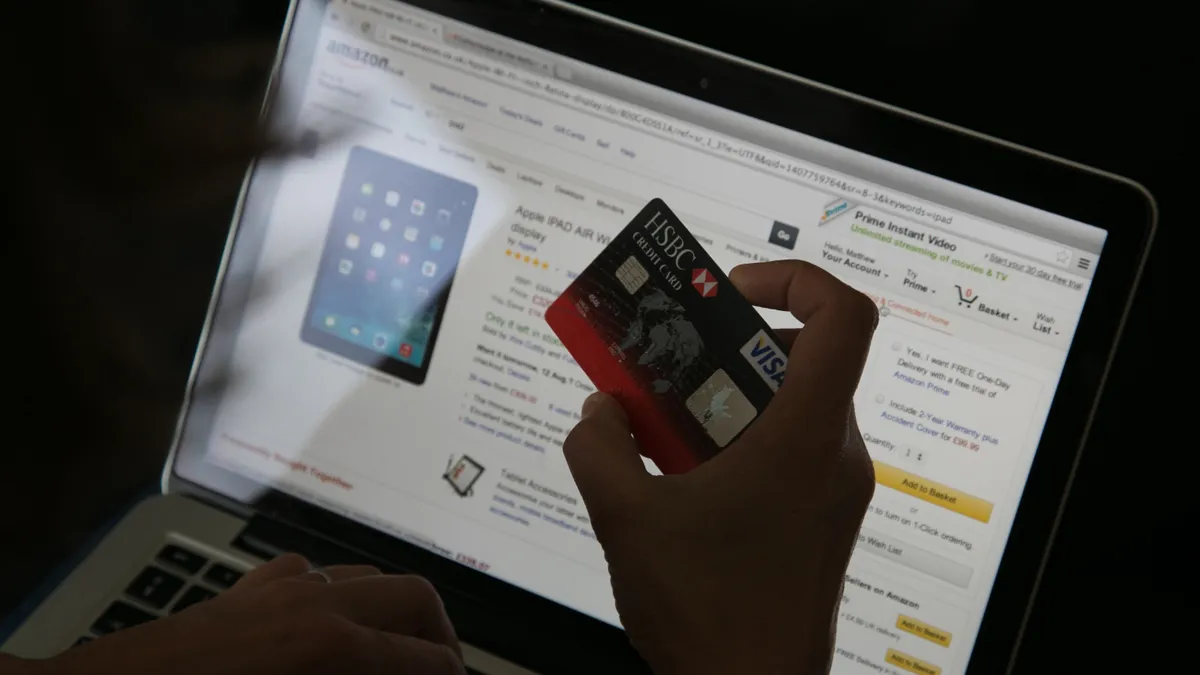Doug Kantor is general counsel at the National Association of Convenience stores and a member of the executive committee of the Merchants Payments Coalition.
Over 10 years after Congress brought competition to how in-store debit card transactions are processed, the Federal Reserve is finally seeking to clarify that the same rules apply to online debit transactions as well.
The move has been strongly backed by the two top government agencies in charge of fairness in open markets: The Department of Justice says competition over where online debit transactions are routed for processing “could have a very significant impact on the U.S. economy as a whole.” And the Federal Trade Commission says action is needed because card networks’ and big banks’ efforts to block online routing competition “eviscerate” merchants’ legal right under federal law to choose who processes the transactions.
But as the Fed addresses debit card routing choice, it’s time to bring the same choice — both in-store and online — to credit card transactions.
Lack of meaningful competition in routing or elsewhere has left Visa and Mastercard overwhelmingly dominating the credit card market, with Visa accounting for 55 percent of transactions and Mastercard 23 percent — or 78 percent between the two, according to the Nilson Report. Even American Express is a distant third at 15 percent, with Discover still in single digits after nearly 40 years of trying to offer an alternative.
Who processes credit card transactions is key because it determines who gets the tens of billions of dollars in appropriately named “swipe” fees banks charge merchants for processing each year — and how much is charged. Currently, Visa credit cards are only processed over the Visa network and Mastercard over the Mastercard network. In those networks, virtually all banks that issue the two brands of cards follow high fees set centrally by the two payments networks rather than competing on price and service for merchants’ business. That has allowed fees to grow year after year. Last year, Visa and Mastercard credit card swipe fees totaled $61.6 billion, more than double the amount a decade earlier with no competition to keep them in check.
By contrast, the 2010 federal law now being clarified by the Fed requires that debit cards be able to be processed over at least two unaffiliated networks — Visa or Mastercard plus highly competitive independent networks like NYCE, Star or Shazam that offer lower fees and better security. Doing so has saved merchants billions of dollars each year, and economist Robert Shapiro estimates that 70 percent of the savings has been passed on to consumers. The Fed’s current move to ensure that the law is enforced online in addition to in-store will mean even more competition and more savings.
Global payments consulting firm CMSPI says bringing routing choice to credit cards could save merchants and their customers $11 billion a year. Independent networks have the technical capability to process credit card transactions and the security to protect those transactions — they just need a chance to compete for the business.
After a few years on the back burner, credit and debit card fees have come to a boil again in Washington, particularly after Visa and Mastercard audaciously tried to raise credit card swipe fees by more than $1 billion a year this spring even as merchants and consumers still struggled to recover from the pandemic. They backed down only after key members of Congress said they were “slamming struggling merchants, and by extension consumers.” They also came under scrutiny at a Senate antitrust hearing for trying to “get even” for debit card competition.
Meanwhile, the DOJ and FTC are investigating debit card routing practices and merchants are suing Visa and Mastercard in multiple cases in federal court, saying the way credit card swipe fees are set violates antitrust law.
The FTC recently launched a broad look at anticompetitive practices across corporate America. As part of that, the commission should expand its existing probe of debit card routing to include credit cards. Network exclusivity provisions in Visa and Mastercard credit card contracts create glaring competition problems that stop the market from evolving and prevent smaller players from introducing innovations that could benefit merchants, consumers and the nation’s economy alike.
Shazam says Visa and Mastercard use their control of the EMVco standards-setting organization “to prevent competition and maintain their control of the payment ecosystem” while the National Retail Federation says “the creativity of Visa and Mastercard is boundless when it involves protecting their market share.”
This is not just a business-to-business fight. Credit and debit card swipe fees are most merchant’s highest expense after labor and drive up prices for consumers by hundreds of dollars a year for the average family. U.S. swipe fees are among the highest in the industrialized world, an average of 2.2 percent of the transaction amount for Visa and Mastercard credit cards compared with 0.3 percent in Europe.
The landmark pro-consumer debit card competition bill signed into law in 2010 was the result of years of hearings and careful congressional deliberation over both credit and debit card swipe fees. But it was a compromise in that it covered only debit cards and not the far larger cash cow of credit cards. With more than a decade of soaring bank and card network profits since then and a mammoth unearned windfall as the pandemic has forced more shopping online — where virtually all purchases are made with plastic — the time has come to finish the job. A full investigation by the FTC — and perhaps the DOJ — would provide the ammunition needed to bring the strong-arm tactics of excessive market power to an end.












